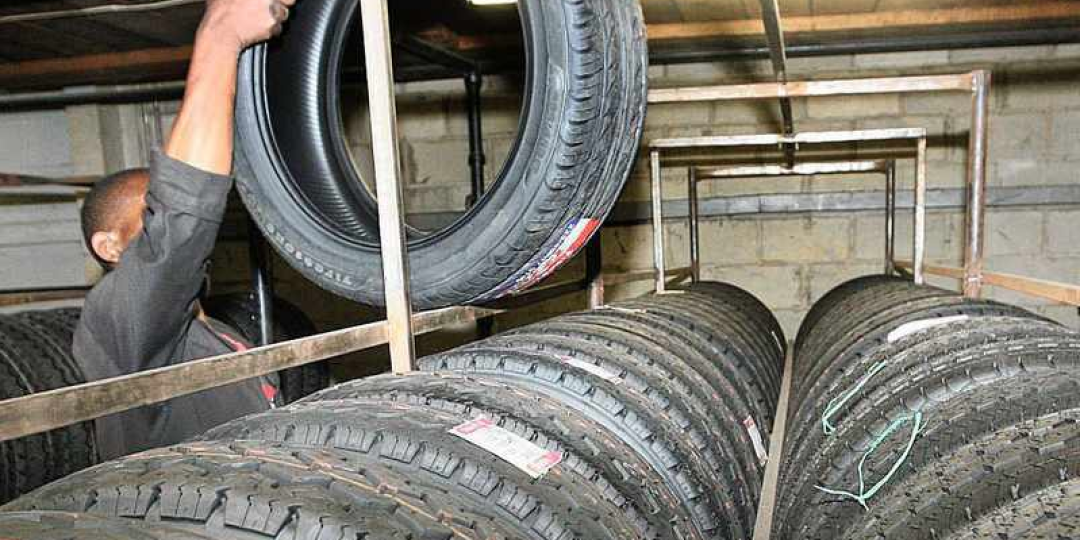Transport firms will have to fork out an additional 22% for imported tyres following the imposition of a new provisional payment of import duty on dumped imported Chinese tyres.
This is the warning from the Tyre Importers Association of South Africa (Tiasa) following the International Trade Administration Commission’s (Itac) announcement on Thursday of the imposition of a new 38.33% provisional duty on tyres imported from China. This is on top of the current import duties of between 25% and 30%. The latest duties will push overall duties on tyres close to the 70% mark.
Tiasa has called for the immediate reversal of the decision, saying that the duty is a fresh blow to cash-strapped consumers, as it will impact the cost of transport, food and goods, and therefore general inflation.
The provisional duties are effective immediately. Taxi operators will pay 23% more for tyres, truck and logistics providers will pay 22% more, while passenger vehicle owners will now have to lay out 21% to 25% more for tyres.
Local manufacturers of tyres, Continental, Bridgestone, Goodyear, and Sumitomo - collectively known as the South African Tyre Manufacturers Conference (SATMC) - applied to Itac for the imposition of substantial additional duties on passenger, taxi, bus and truck vehicle tyres imported from China. SATMC earlier welcomed the decision to impose higher import duties saying it would not affect tyres imported from other countries such as Japan.
However, Tiasa chairperson Charl de Villiers described the duties as “crippling” for consumers.
“What is difficult to understand is that this announcement comes as Cabinet is debating the introduction of an economic relief package to help South Africans survive the rising cost of living and rampant inflation,” he said.
In late August, Stats SA released the latest consumer inflation figures which showed that annual consumer inflation had reached a 13-year-high, increasing to 7.8% in July from 7.4% in June. The average food basket, according to the Pietermaritzburg Economic Justice and Dignity Group, increased by 12.6% between August 2021 and August 2022, and Eskom’s tariff increase for 2022 was 9.61%.
According to Stats SA, public transport costs rose 9% in July, pushing the annual increase to 16.4%.
De Villiers said the import duties would negate the impact of the lowered petrol price on the economy as tyres were the biggest input cost in transport after wages and fuel.
“These increases will be extremely difficult for financially constrained consumers to afford, given the current inflationary climate. The unfortunate consequence is that people will either delay replacing their tyres, or trade down to illegally regrooved tyres, both exceptionally dangerous outcomes, especially as we head into the end-of-year holiday season,” he said.
“Government’s rationale for the imposition of duties is ostensibly to help protect local manufacturers, but in the case of tyres, the local manufacturers themselves import the vast majority (80%) of the over-3 000 different models of tyre ranges they sell. They have to do this because it is not cost-effective to set up production lines for that many models within one plant,” said De Villiers.
SATMC has argued that the duties will protect the direct jobs of 6 000 workers and 19 000 supporting jobs. However, Tiasa said its members, which are all South African wholesale companies, employed 3 000 people directly and supported at least 55% of the 19 000 indirect jobs claimed by SATMC.
“The point is that every single job sustained in our country is valuable. The additional duties will push many of these companies out of business, destroy jobs, and add an excruciating financial burden on every motorist in the country, every bus company, every taxi owner, and every commuter,” he said.
“Tiasa calls on government to reverse these duties. There is precedent for government making bold decisions that benefit South Africans. Earlier this year, government absorbed some of the increases in the fuel levy, passing this saving on to consumers and businesses. Similarly, in August, the minister of trade, industry and competition decided, in the public interest, to suspend the imposition of anti-dumping duties on imported chicken. This shows that government is prepared to make difficult decisions that are in consumers’ best interest,” De Villiers added.













